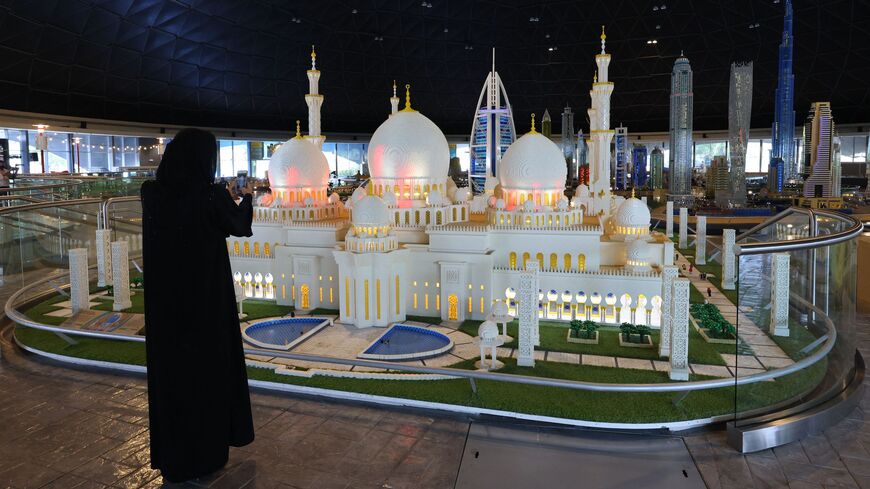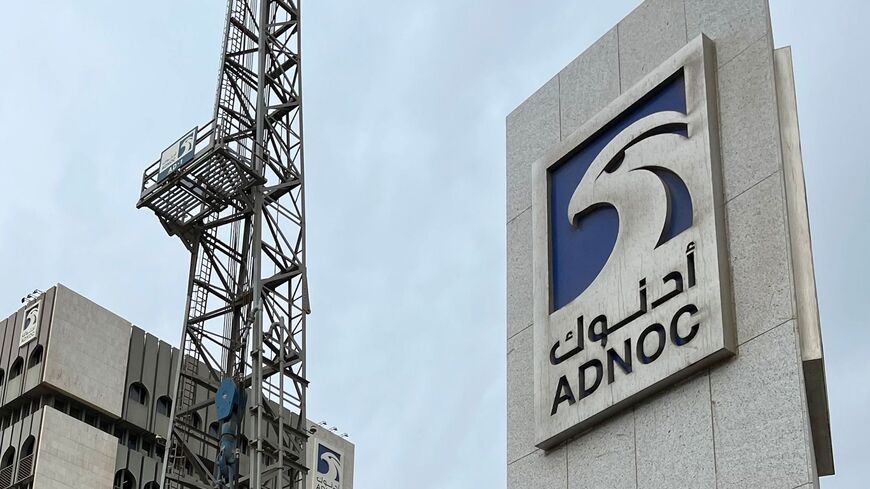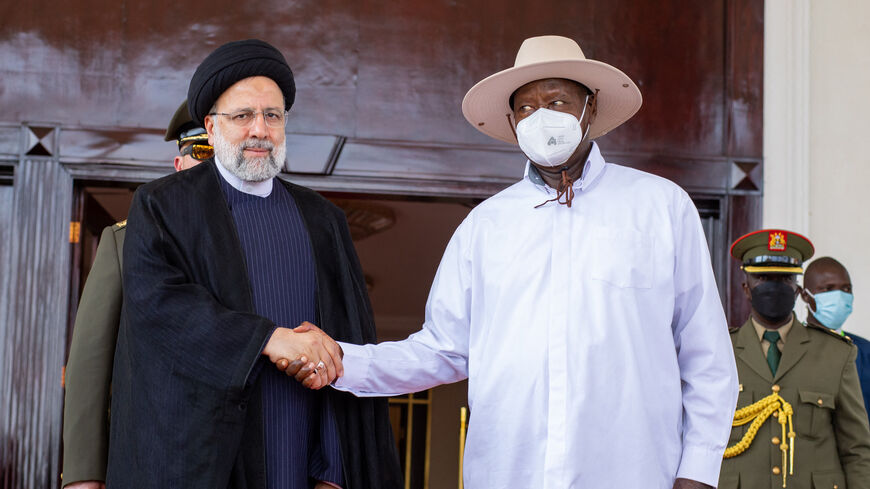Gulf tax landscape ushers in a new era
Al-Monitor Pro Members
Sebastian Castelier
Business journalist covering Gulf economies
Dec. 27, 2022
The introduction of value-added tax systems across four Gulf countries since 2018 has been the first step of a gradual changeover in the Gulf states’ branding as low-taxed jurisdictions, so-called tax havens. The upcoming corporate tax in the United Arab Emirates (UAE) and talks about the Gulf’s first income tax in Oman confirm the trend: businesses and individuals will be pressed into service to jumpstart economies decoupled from oil prices.
- The UAE issued its corporate tax law on December 9, 2022, as the country prepares to levy a standard 9% corporate tax from June 1, 2023, on companies’ taxable income exceeding AED 375,000 ($102,000). Roughly three-quarter of businesses in the UAE polled by The Economist Intelligence Unit said they are fully or nearly ready for it.
- The UAE might be a late mover on corporate tax, but its universal approach is set to challenge the status quo. Saudi Arabia, Qatar and Kuwait have levied a corporate tax for many years on companies with non-GCC ownership. But they stick to not taxing GCC citizens-owned ones or asking them to pay zakat, a form of obligatory Islamic charity which collection is uneven and rate is significantly lower than corporate tax.
- Bahrain is the last GCC country not levying any corporate tax, except for businesses that operate in the oil and gas sector. But the introduction of a corporate tax is now more a question of “when” rather than “if” it will happen, the Head of Tax at KPMG in Bahrain said during a June 2022 seminar. Oman is already one step closer to universal taxation. It levies a 15% corporate tax on all businesses except for Omani–owned SMEs with an annual gross income below OMR 100,000 ($260,000).
- Universal taxation fits into a liberal push to align with global markets. “The uneasy question is: are we going to tax GCC nationals in the same way as foreign nationals?,” said Thomas Vanhee, Founding Partner at Aurifer, a Dubai-based tax advisory firm.
- Taxing transnational corporations is no longer a matter of choice. The OECD/G20 agreed in October 2021 on a Global Minimum Tax rate of 15% on multinationals to end a “race to the bottom” in corporate taxation. In other words, Gulf states are now enticed to take a slice of the cake by taxing profits earned within their borders rather than sticking to low-tax regimes only to see such profits taxed elsewhere after 2023.
- The corporate tax is also a stature play for the UAE to distance itself from ‘darker’ offshore financial centers such as the Cayman Islands or the British Virgin Islands. And to assert: “we are part of the international tax community, and we want to follow the same rules”, Vanhee told Al-Monitor. Introducing corporate tax will help the UAE to stay out of ‘scrutiny lists’. The European Union added the UAE to its list of non-cooperative jurisdictions in 2017 and 2018, each time u-turning a few months later. The Financial Action Task Force (FATF), a global financial crime watchdog, “gray-listed” the UAE in March 2022 over gaps in its anti-money laundering regime.
- Individuals, too, feel a storm is brewing. Oman’s legislative body, the Shura Council, passed a draft law on November 6 to introduce the Gulf’s first oil-era income tax on high earners. The country’s Minister of Finance said on December 20 that the tax will not be applied in 2023, contrary to the timeline revealed to Al-Monitor in March 2022 by sources at the National Program for Fiscal Balance. But the fox might already be in the henhouse as Gulf policymakers push to redefine cradle-to-grave welfare systems.
- In the UAE, an income tax “is not at the table at all now,” the minister of state for foreign trade told Bloomberg in February 2022. The issue is contentious. It risks challenging state-society dynamics and annihilating the trump card of Gulf economies to entice migrant workers: tax-free wages. Saudi Arabia introduced an income tax in 1950 but reformed the tax law six months later to exclude citizens and suspended it for foreigners in 1975 as oil revenues grew and the kingdom sought foreign expertise.
- GCC countries agreeing in 2017 to introduce a 5% VAT was “the turning point” that opened doors to tax people’s purchasing power in a region long branded as tax-free, Prateem Sengupta, Associate Direct Tax at tax consultancy firm Andersen in the UAE told Al-Monitor. So was the 2017 GCC Excise Treaty to tax goods harmful to health.
- Gulf states’ budgets are already hooked to VAT receipts. “We are seeing a very rapid expansion of non-oil and gas revenues for the Omani government,” Alkesh Joshi, Muscat-based Tax Leader for Oman at accounting firm Ernst & Young, told Al-Monitor. In Saudi Arabia, it accounted for around 43% of non-oil revenue in 2021. Embedding taxation into digitizing Gulf economies will also build a culture of greater corporate transparency, a tool for governments to monitor nascent non-oil economies. The UAE doubled tax inspections in the first half of 2022. “I do not think Gulf states implement taxes for better oversight, but it is a byproduct,” Sengupta said.
- Qatar and Kuwait have so far have resisted VAT implementation. “I do not see it happening anytime soon in Kuwait. A lot of preparatory work has already been done behind the scenes in Qatar, but given the beneficial fiscal situation, there is no need to do this for revenue purposes. One reason to push ahead would be to do so as a sign of GCC policy unity. Kind of saying, “this is something we decided jointly; let’s do it”, Vanhee said.
- “If anything, unfortunately, rather than converging, we have diverged between the Gulf states,” Vanhee said about custom duties. The GCC agreed in 2003 on a customs union with a one-time 5% tariff on non-GCC imports levied at the point of entry into the GCC. GCC manufactured goods were exempted from duties until Saudi Arabia pushed back in 2021, requesting that products labeled GCC national goods imported into the kingdom should “achieve a localization rate of national workforce of no less than 25% of the total workforce of the factory”. Such a requirement plays against Qatar and the UAE, where nationals make up only about 12% of the population.
Scenario 1: New taxes are nothing but cosmetic.
Free zone entities, responsible for about 32% of Dubai's GDP in 2018, will not be taxed on revenues derived from transactions with overseas and other free zone entities. Multinationals in free zones will still be subject to the Global Minimum Tax. Besides, tax exemptions are common. Emirati citizens are eligible for a refund of VAT on construction costs when building a new residence. According to Joshi’s interactions with government officials, Oman's VAT exemption for 488 food products is not expected to change in 2023.
Truth is that economic interests and long-term stature play drive changes in the Gulf’s tax landscape, not ideology. “My two cents is that in 2023 we will see a reform of the tax regime in Saudi Arabia because the way in which the tax regime is designed is slowing down foreign direct investments into Saudi Arabia,” Vanhee said. The tax expert highlighted that 5 to 20% withholding taxes on dividends, interests, royalties leaving the kingdom gives investors the impression that the business landscape is “complicated” and that capital might easily get “stuck”. There are no withholding taxes in the UAE. “If Saudi Arabia gets that piece of the puzzle right, then they will see a very, very large influx of FDIs”, Vanhee added.
Scenario 2: Gulf states' room for maneuver is limited
Gulf states might already be touching the limits of their ‘taxing power’ as citizens wave the political slogan “no taxation without representation”. The region though boasts the Middle East’s lowest risk of social unrest in 2023, according to The Economist Intelligence. Migrant workers, the blood of Gulf economies, feel the golden age of tax-free wages is fading. The first mover on taxing personal income risks shouldering the burden of change. “Expats might move rather quickly [...] If for example the UAE says we are going to do this and Saudi Arabia would not, you would probably have a push of people moving towards Saudi,” Vanhee said.
Yet, as much as the region’s attractiveness is at stake, rising taxation is an opportunity for Gulf states to rebrand their value proposition beyond financial gains and entice prospective talents with non-financial benefits. Dubai’s 2040 Master Plan focuses on enhancing quality of life by doubling the size of green and recreational spaces, increasing public beaches’ length by 400% and setting up green corridors to link residential areas and workplaces.
The sentiment towards taxation gradually evolves across Gulf countries that actively look to jumpstart non-oil sectors. Steven Ireland, head of tax at the UAE-based Creation Business Consultants, told Al-Monitor: “A decade ago, no one was interested in taking tax advice. They would say, ‘we never paid tax in the past, so why would we need advice.’ But things have changed.” Still, tax rates will likely remain low compared to international standards as the region seeks to retain a key competitive advantage to attract businesses and global talents.
Sebastian Castelier has been reporting on GCC countries since 2016, with a focus on how the oil-rich region navigates the long-term energy transition economically, socially and politically. He has been a contributor to Al-Monitor since 2019 and writes for various publications, including Haaretz, Al Jazeera, The Independent and Le Temps, among others.
We're glad you're interested in this memo.
Memos are one of several features available only to PRO Expert members. Become a member to read the full memos and get access to all exclusive PRO content.

Already a Member? Sign in
The Middle East's Best Newsletters
Join over 50,000 readers who access our journalists dedicated newsletters, covering the top political, security, business and tech issues across the region each week.
Delivered straight to your inbox.
Free
What's included:
Free newsletters available:
- The Takeaway & Week in Review
- Middle East Minute (AM)
- Daily Briefing (PM)
- Business & Tech Briefing
- Security Briefing
- Gulf Briefing
- Israel Briefing
- Palestine Briefing
- Turkey Briefing
- Iraq Briefing
Premium Membership
Join the Middle East's most notable experts for premium memos, trend reports, live video Q&A, and intimate in-person events, each detailing exclusive insights on business and geopolitical trends shaping the region.
$25.00 / month
billed annually
$31.00 / month
billed monthly
What's included:
Memos - premium analytical writing: actionable insights on markets and geopolitics.
Live Video Q&A - Hear from our top journalists and regional experts.
Special Events - Intimate in-person events with business & political VIPs.
Trend Reports - Deep dive analysis on market updates.
We also offer team plans. Please send an email to pro.support@al-monitor.com and we'll onboard your team.
Already a Member? Sign in







